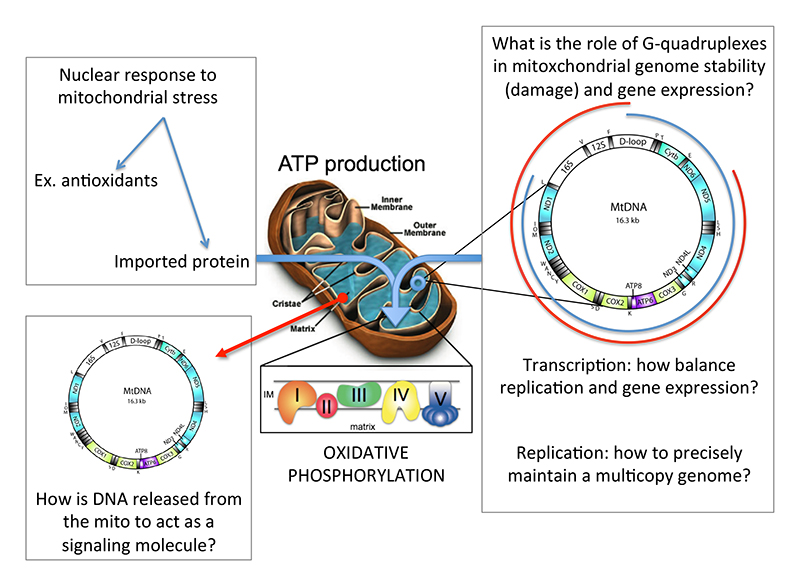Brett Kaufman, PhD

Associate Professor, Cardiology
E1241 BST
200 Lothrop Street
Pittsburgh, PA 15261
Email: bkauf@pitt.edu
THE THREE MOST SIGNIFICANT QUESTIONS THAT DEFINE YOUR RESEARCH PROGRAM:
What protects mitochondrial genome stability?
How broadly does mitochondrial dysfunction and damage contribute to human disease?
How does mitochondrial metabolism regulate the release of mitochondrial DNA as a signaling molecule?
FIVE KEYWORDS THAT DESCRIBE YOUR AREAS OF INTEREST:
Mitochondrial oxidative phosphorylation, Mitochondrial oxidative damage, Mitochondrial DNA metabolism and damage, G-quadruplex function and regulation
TECHNIQUES, MODELS, METHODS, ANALYTIC APPROACHES, ETC:
Mouse models of mitochondrial DNA instability (CRISPR-CAS9, cellular and whole animal metabolic phenotyping)
mtDNA content and damage as a diagnostic for mitochondrial stress (high-throughput qPCR and high-precision dPCR detection)
Mitochondrial genome replication, transcription, supercoiling, and damage (2D gel analysis)
Nuclear and mitochondrial gene expression changes in response to mitochondrial stress (qRT-PCR methods)
Mitochondrial post translational modification (2D-IEF methods)

